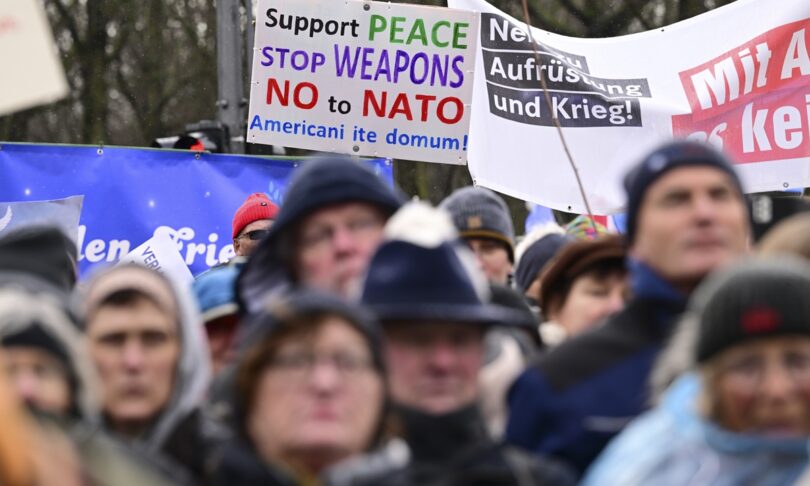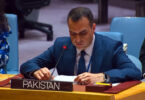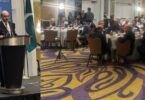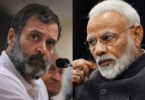LONDON (Agencies): After protests in several European countries against the continuous supply of weapons to Ukraine, experts say the divisions within the European Union may also lead to a split within NATO and the public outcry reflects the strategic misalignment of European countries, making their citizens the biggest victims.
According to The Guardian, thousands of people took part in a demonstration on Saturday in central Berlin to protest against giving more weapons to Ukraine, urging the German government to deescalate the crisis by paving the way for negotiations instead.
Police estimated there were 13,000 people at the Brandenburg Gate. Similar demonstrations took place in other German cities as well, The Guardian reported.
The protests in Germany were relatively predictable, since Germany is one of the countries most negatively affected by the Ukraine crisis, Gao Jian, director of the Center for European Think Tank Studies at Shanghai International Studies University, told the Global Times on Sunday. Europe’s interests have not only been harmed by Ukraine crisis-aggravated energy crisis, but also by the implementation of Washington’s Inflation Reduction Act, which has pushed Europe into a deeper economic crisis.
According to The Guardian, two weeks ago, the organizers of the Saturday’s demonstration had published a “Manifest for Peace” in which they urged German Chancellor Olaf Scholz to “stop the escalation of weapons deliveries.” It was signed by about 650,000 people, including prominent intellectuals and political figures.
The Russia-Ukraine conflict allowed the US to achieve its strategic goal of sowing discord between Russia and Germany.
German Chancellor Olaf Scholz said in a recent television interview that he does not see any prospect for peace talks at present.
Norbert, a former soldier, who held a banner reading: “The real enemy sits in the City of London and New York,” a reference he said to the financial powers who he claimed were behind the war and had no interest in it ending. Germany, he said, had no right to participate in another war after World War II, The Guardian quoted him as saying.
According to China’s national broadcaster CCTV, also on Saturday, hundreds of people demonstrated in Zurich, Switzerland, against the shipment of weapons to Ukraine, calling for an end to the implementation of sanctions against Russia. Demonstrators also called on Switzerland to stop moving closer to NATO.
The US’ manipulating its allies and desire to contain Russia have also turned off the European people, Sun Keqin, a research fellow at the China Institutes of Contemporary International Relations, told the Global Times. “So, amid so-called great “unity,” the rifts within Europe are actually getting deeper,” he added.
The EU approved a 10th package of sanctions against Russia on Friday. The package includes tighter export restrictions regarding dual-use goods as well as measures against entities supporting Russia.
Relations between Europe and Russia will be harder to repair after the 10th round of economic sanctions, Gao said. Once investment flows out of Russia, it is hard for Europe to bring it back. The counterproductive reaction to such sanctions can be very damaging to European countries, he warned.
“For European people, defeating Russia is not a realistic goal, but stopping the conflict is the most effective solution. If the European and Russian economies were to “decouple,” as sanctions become more and more extensive, it would deal a devastating blow to the European economy,” Sun said.
Courtesy: globaltimes







